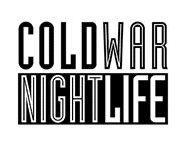If you want to immerse yourself in cold war counterculture, ground zero on Thursday, 9 July 2015 is the Sage Club in Berlin. Under the rubric, “Cold War Night Life,” a full evening of film and music is planned. B-movie, the tale of underground Berlin as told by Mark Reeder, provides the focus, and it will be followed by DJs across the multi-level club’s rooms. The event will examine the situations in both East and West Berlin, including the allure of the West for creative tourists like David Bowie and Brian Eno.
Before the party begins, a panel discussion will take place, moderated by Anja Caspary of Radio Eins. The panelists include Reeder (MFS), Dr. Motte (Loveparade founder and DJ), Ronald Galenza (East German club promoter) and others, providing a range of perspectives from key figures in the alternative music scene during the 1980s and 1990s.
See the event page for details (which include free admission before 22:00 hours).





